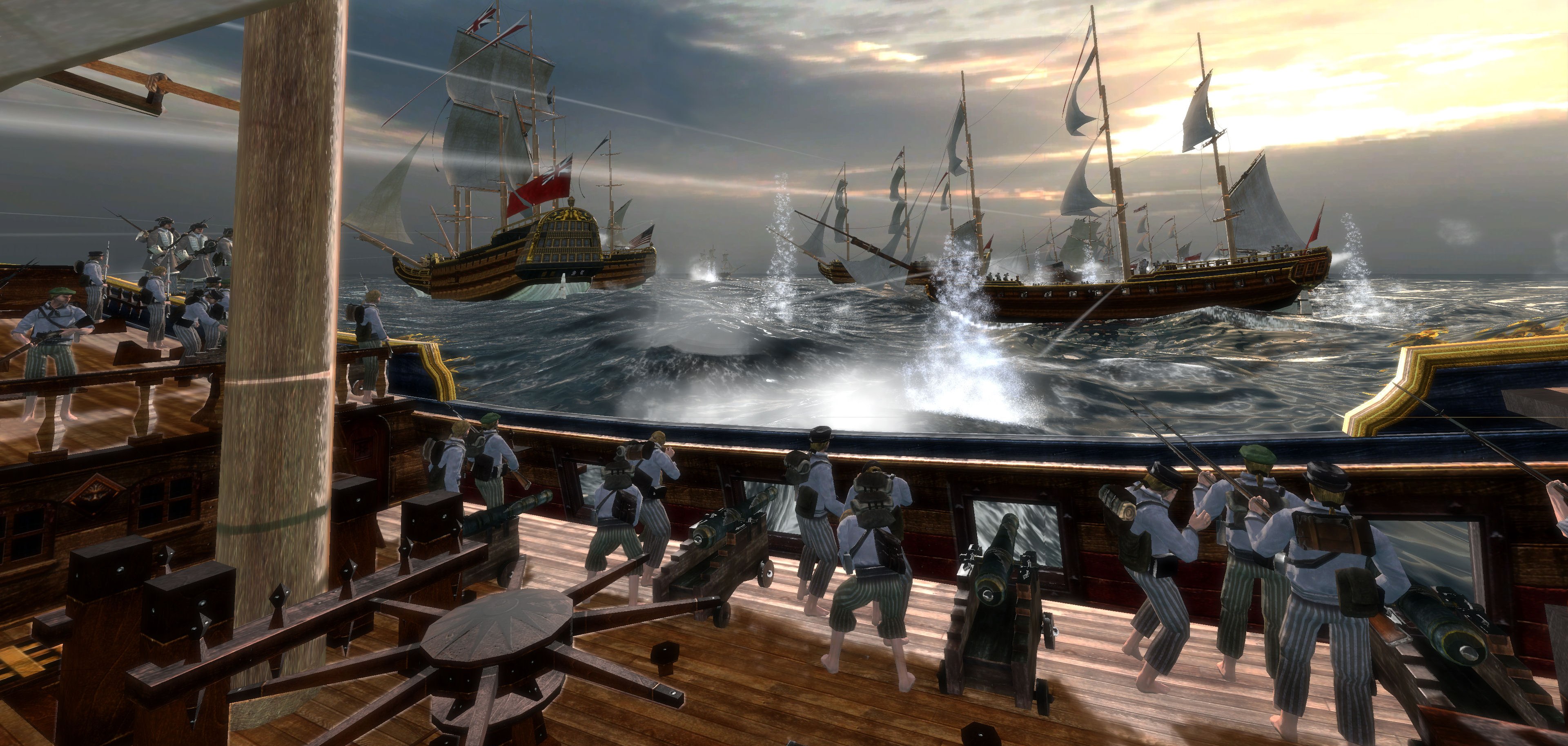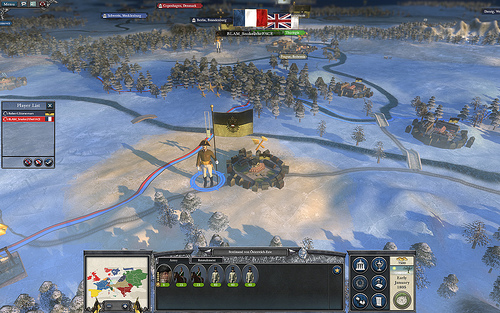This post has not been edited by the GamesBeat staff. Opinions by GamesBeat community writers do not necessarily reflect those of the staff.
Editor's Note: I've always been a fan of complex games. I love getting lost in minutiae and wondering, hours later, where the day went. However, Suriel piqued my curiosity in Greed Corp. Now I'm eager to give this simpler game a try and see if it can capture my interest like it did for him. -Jay
I don't work at gaming website or magazine, so I'm able pick and choose what games I want to review. This approach has many benefits; I don't have to force myself to play through awful games if I don't want to, and I review games that I think I'll actually be able to write something interesting about, rather than re-hashing graphical assessments and "fun factors".

Recently, however, I've tried to reach out of my comfort zone and try games that normally wouldn't appeal to me. Both Greed Corp and Napoleon: Total War fit this criteria quite nicely. My experience in the strategy genre consists mostly of StarCraft and the Advance Wars series. Because I love both of these games, I thought exploration of the deeper recesses of the genre would produce satisfying results. Greed Corp appealed to me because it was lighthearted take on turn-based strategy, much like Advance Wars; Napoleon offered an encompassing realism that would test me.
Though I decided to not review these games, I still played them (and I am still playing them now) simply because they stimulated the same part of my brain — the part that loves working around rules. What's even more interesting, however, is that these two games produce this effect in me in completely different ways.

Greed Corp takes the simplest approach possible. It's a quasi-board game with a hexagonal board, but it differentiates itself from other such games by favoring an aggressive approach. Gathering a single resource with Harvesters sucks the land dry and consequently lowers, cracks, and eventually destroys the tiles around the Harvester. The game constantly forces you to march on towards the enemy, leaving suicide or loss due to lack of resources as the only alternatives. The endgame will usually involve a handful of small islands attacking each other through either cannons or air drops, which both require large amounts of money to operate.
Napoleon, on the other hand, is much more methodical. You must calculate every move and execute it over a number of turns; gathering armies, building relationships with other countries, and managing your own territories are only a few of the things that any aspiring emperor must commit. You can auto-manage and forget about some of these items but, even without the more complex aspects, you must touch all of these options at some point. The battles which punctuate the turn-based economy metagame are also a case of slow execution. You can fast-forward actual movement, but both the circumstances that lead to a battle and foresight will ultimately decide the winner of a conflict.
 Napoleon consists of many small factors that add up to a larger experience. In battle, everything from the orientation of your troops and kind of ammo you're using to the wind speed and weather conditions can affect the flow of battle. Likewise, the amount of cash you rake in during turn in the campaign depends on what trade routes you control as well as what towns you have lordship over. Managing the smaller facets is as much of an obstacle as the actual "game" is. Complex games attract certain people because of these types of intricacies; to them, managing these things is as fun as actually going toe-to-toe with England time and again.
Napoleon consists of many small factors that add up to a larger experience. In battle, everything from the orientation of your troops and kind of ammo you're using to the wind speed and weather conditions can affect the flow of battle. Likewise, the amount of cash you rake in during turn in the campaign depends on what trade routes you control as well as what towns you have lordship over. Managing the smaller facets is as much of an obstacle as the actual "game" is. Complex games attract certain people because of these types of intricacies; to them, managing these things is as fun as actually going toe-to-toe with England time and again.
Greed Corp, on the other hand, casts out many of these complications for the sake of keeping the gameplay simple. You have a single unit, a single building to make that unit, a stationary cannon, a carrier for long-range air drops, and Harvesters. For a strategy game, that's incredibly simple. Instead, you must focus on marking your territory and attacking the enemy with your Walkers. Battles boil down to a greater-than-or-equal-to affair. Missions are quick, especially considering you only have 60 seconds to perform your turn.

This doesn't mean that Greed Corp lacks the strategic and management aspects that Napoleon players hold so dear. You must carefully allocate your resource between building units, arming cannons, and building the one-use carrier that will be a necessity once the battlefield is naught but towering islands. You can also perform some fairly strategic maneuvers, such as dropping a Harvester on a small series of adjoining tiles, dooming them to a slow but profitable death
I love both Greed Corp and Napoleon: Total War. I find it interesting, however, how two games with completely different approaches can be equal amounts tense and rewarding. More than any survival-horror game or movie, Greed Corp made me afraid to play it and nervous throughout. With no option to save during battles, winning is an all or nothing affair. Likewise, the stakes were so high in Napoleon that I couldn't withstand losing a battle, even with the accessible save system. These two games are great examples of how it's possible for the video game industry to give the same sort of pleasure to people of all kinds of disciplines without dumbing down the best aspects of a genre. The "Casual" and "Hardcore" crowds don't exist, in my opinion. You just pick from varying degrees of desired complexity.
